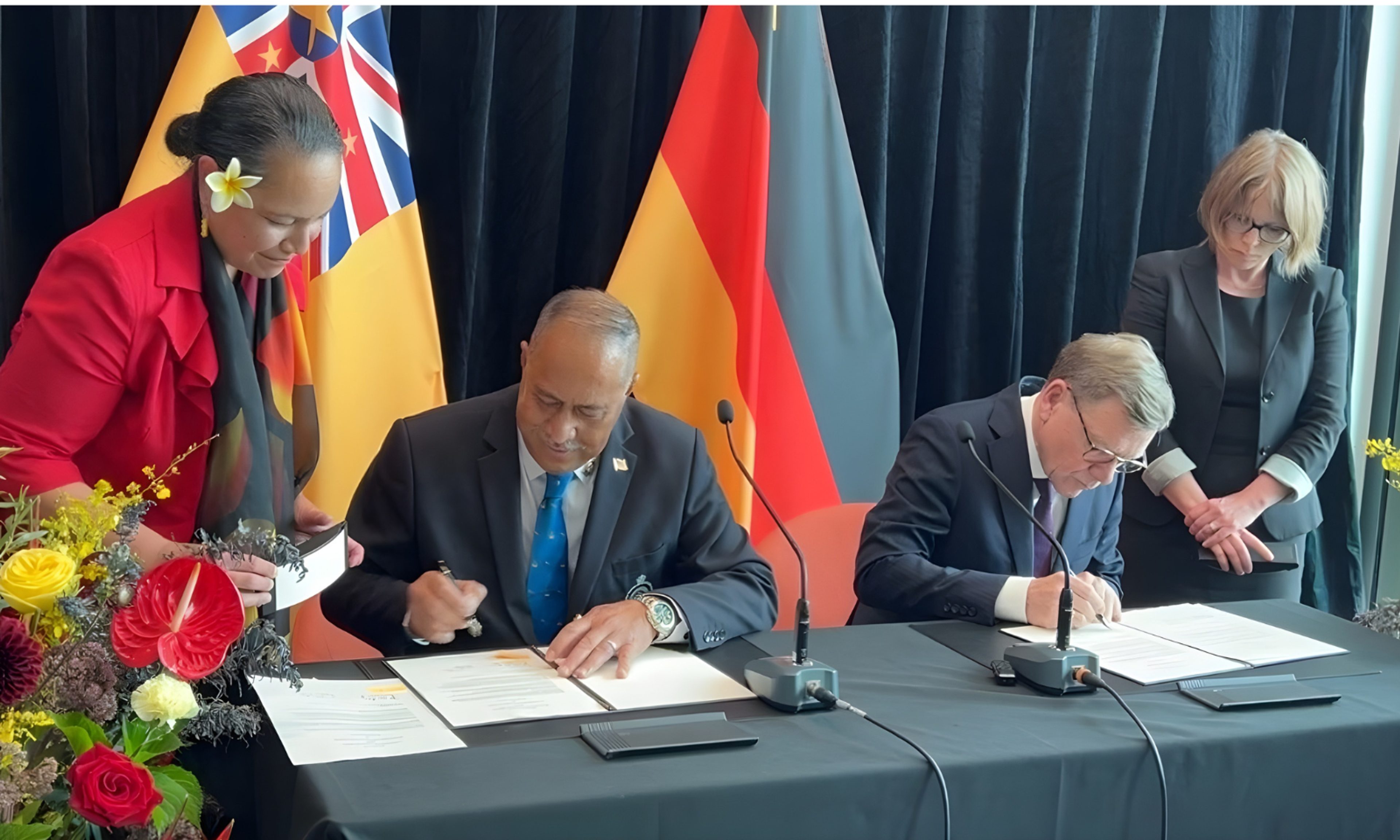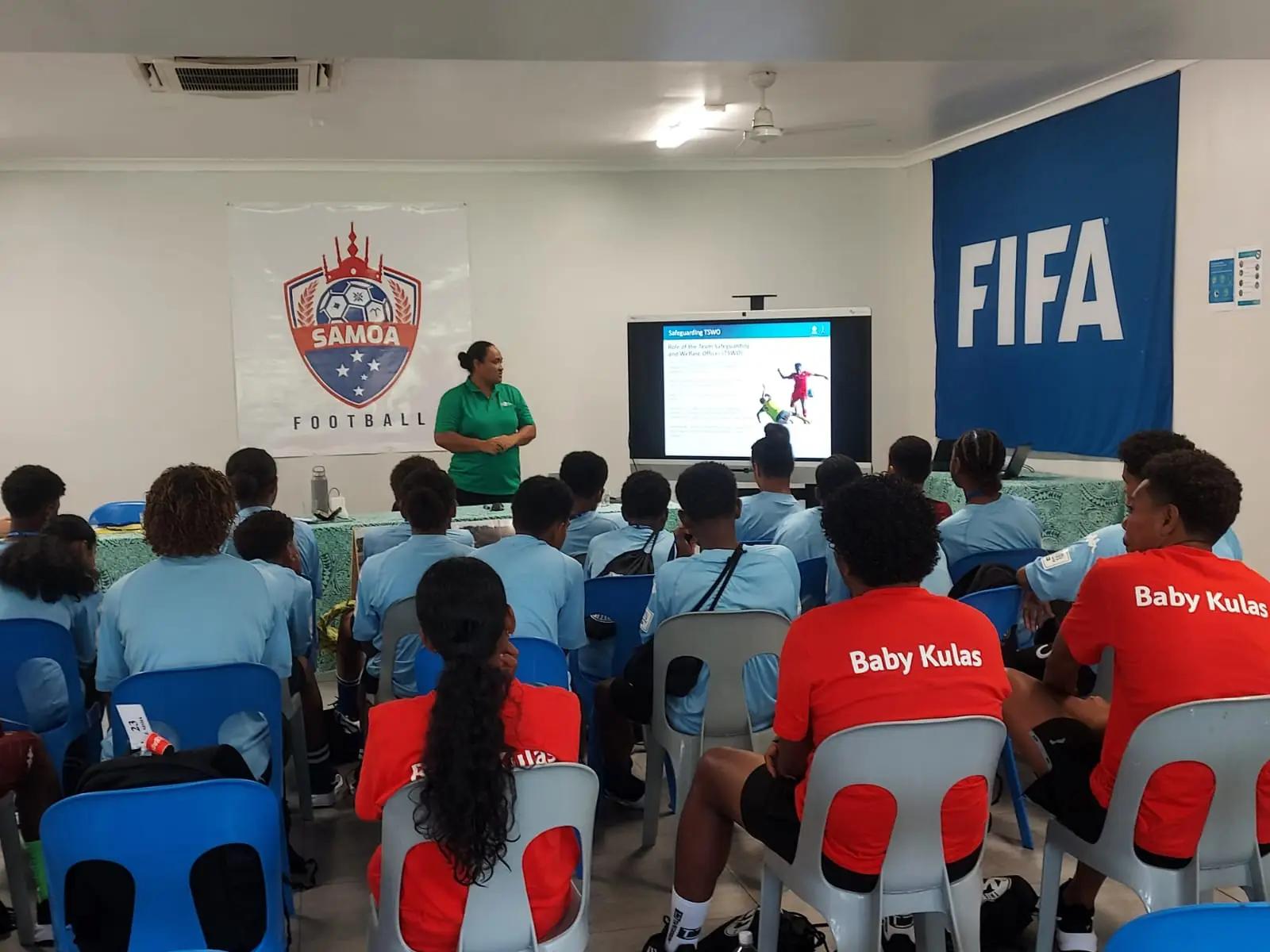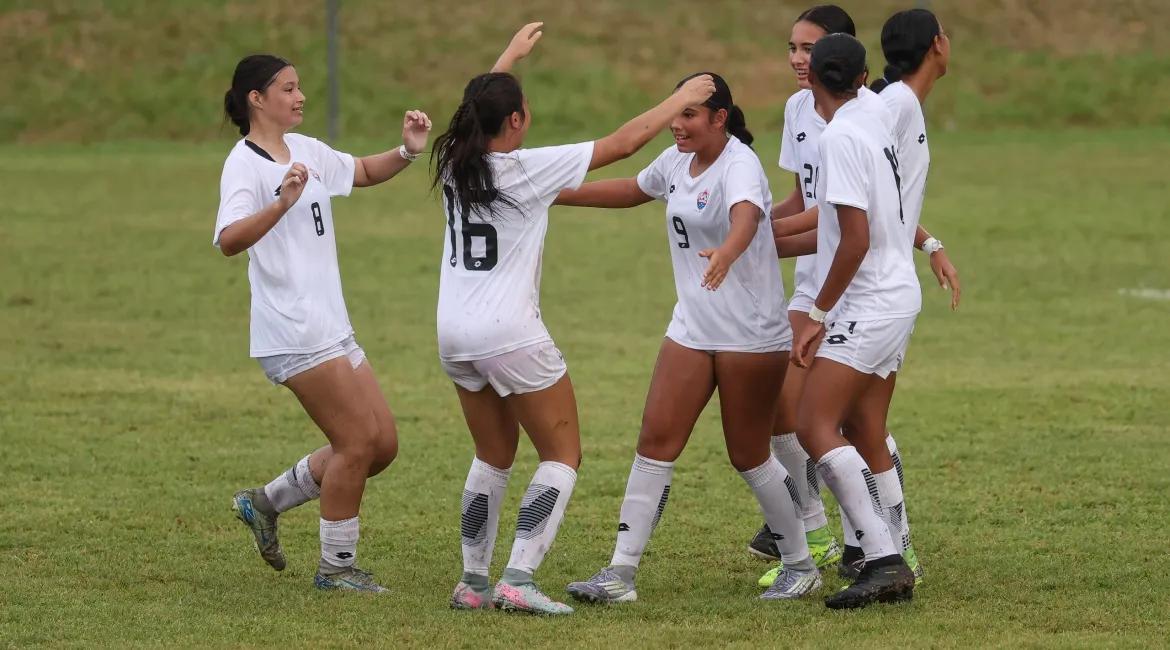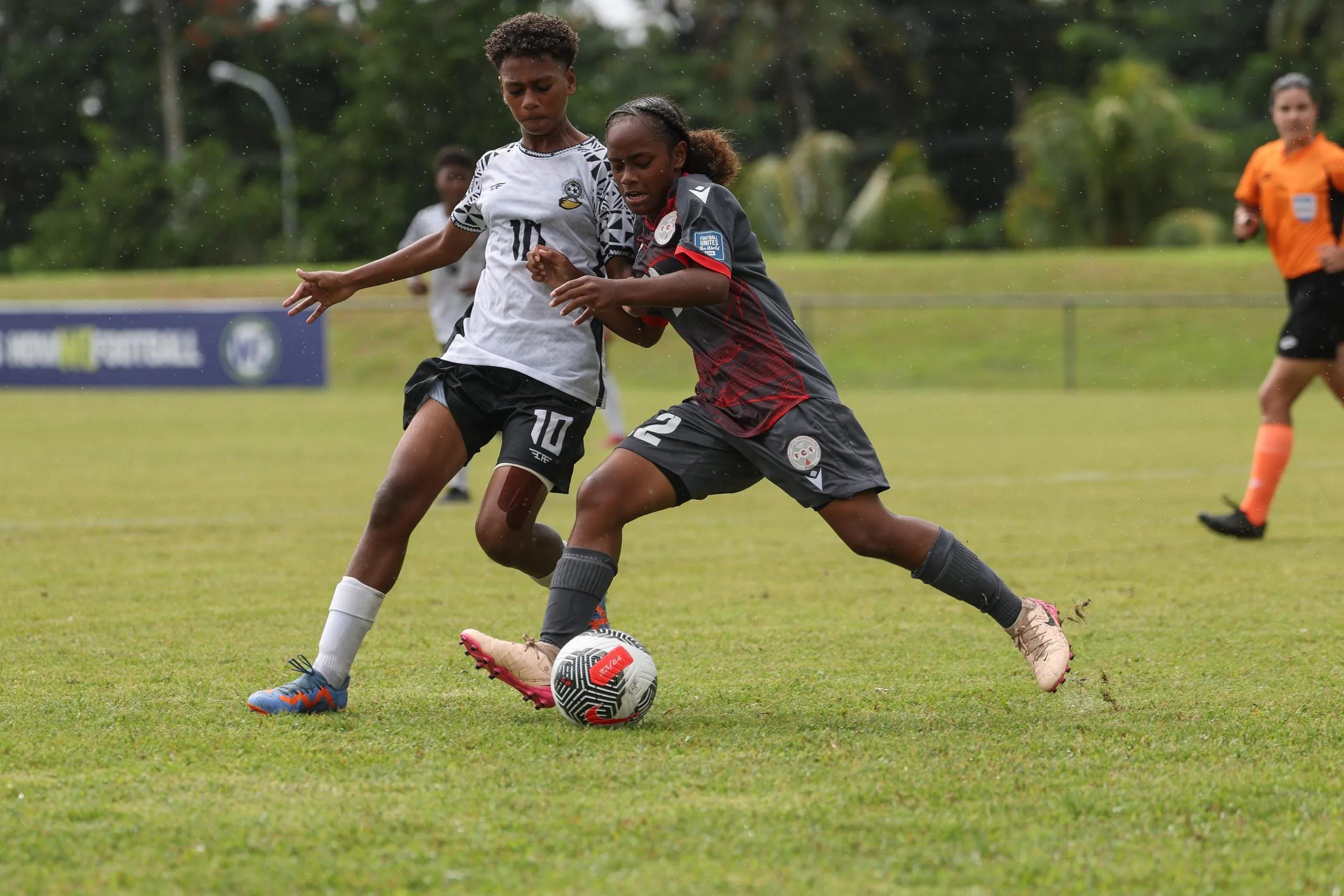

Sāmoa's Under-16 playes line up for the anthem singing ahead of their match against Tahiti. Sāmoa won 1-0.
Photo/OFC Media/Shane Wenzlick/Phototek
'Let's make football safe, not sorry'
Sāmoa reveals plans to protect players at the OFC Under-16 Women's Championship in Apia.


Fiji PM signals possible resignation after court rules anti-corruption chief dismissal unlawful

‘Treat us with dignity’: Pacific visa fight returns to Parliament



Fiji PM signals possible resignation after court rules anti-corruption chief dismissal unlawful

‘Treat us with dignity’: Pacific visa fight returns to Parliament

Sāmoa Football is setting an example in the Pacific when it comes to keeping young players safe.
With the Oceania Football Confederation (OFC) Under-16 Women’s Championship underway in Apia, Sāmoa Football is ensuring a secure experience for everyone involved.
Its Social Responsibility Manager, Pele Taei, is examining how to approach this in the best way.
In Sāmoa, creating a culture of safety is becoming a priority. Before the local football season started, every club participated in training sessions to understand their role in providing a safe environment for players.
Pele, who is completing a special FIFA course on safeguarding, has ensured that the leaders of Sāmoa Football remain engaged in these efforts.
Now that the tournament has kicked off, she says these safety measures are being implemented.
With players under 18, we are extremely careful about everything, for the girls, but also spectators, officials, and everyone involved.”
Every person involved in the event, from security to drivers, understands the importance of safety, has signed a code of conduct, and knows how to report any concerns.
This includes "ball kids", medical staff, and even volunteers from charities like the Red Cross.

Sāmoa Football is leading the way in the Pacific with how they are embedding safeguarding practices in all levels of the sport.
There are posters in team hotels and training areas carrying easy-to-scan QR codes for reporting issues confidentially. Each team participating in the tournament receives a safety briefing upon arrival.
These sessions explain what safeguarding means and how to recognise and report problems.
“In previous tournaments, players didn’t know their safeguarding officer. This year, they do.”
For many of these young players, this may be their first time experiencing international football or travelling abroad, making these safety measures even more important.
Pele's focus on safety goes beyond player welfare. Given the reports of dengue fever rising in Sāmoa, her team checked all accommodations to ensure necessary precautions were in place.
“We visited the hotels to check their preparations for the dengue outbreak. It’s something we take very seriously,” she says.

Sāmoa's U16 players celebrate their goal against Tahiti. Photo/OFC Media
“We need everyone’s help to make safety a priority. Together, we can keep football safe, not sorry.”
Since 2024, a QR code reporting system has been included on all competition passes, enabling anyone involved to easily report safety concerns.
Teams in all OFC competitions go through orientation sessions on safeguarding, and matchday commentators will share important safety messages during broadcasts.
Next year, every team participating in OFC competitions will be required to have a designated safeguarding officer who has completed a specific training module.
Pele says safeguarding is a shared responsibility, and if you see something concerning, don’t hesitate to speak up.
For any safeguarding concerns, you can reach out via email at safe@oceaniafootball.com.

Fiji vs New Caledonia. Photo/OFC Media
Semi-finalists confirmed
Meanwhile, Sāmoa have qualified for the semi-finals of the OFC U16 Women's Championship in Apia.
They join defending champions New Zealand, New Caledonia, and the winner of the Solomon Islands and Tonga match to be played on Friday.
The Sāmoans clinched top spot in Group A after a 1-0 win over Tahiti on Thursday, New Zealand time. The match was postponed for 40 minutes due to heavy rain.
Tova Auvaa broke the deadlock in the 81st minute from a cross from Cali Willis to fire in a superb right-footed shot into the corner of the net.
New Zealand sealed their semi-final spot with a 5-0 drubbing of the Solomons, while New Caledonia proved too strong for Fiji, 6-0.